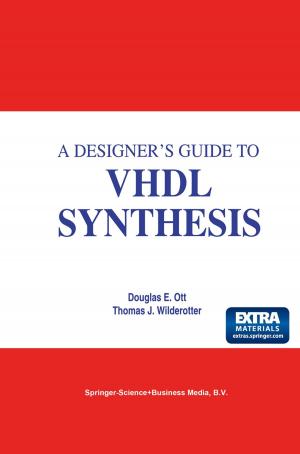| Author: | Dina Penrose | ISBN: | 9781489930859 |
| Publisher: | Springer US | Publication: | December 20, 2013 |
| Imprint: | Springer | Language: | English |
| Author: | Dina Penrose |
| ISBN: | 9781489930859 |
| Publisher: | Springer US |
| Publication: | December 20, 2013 |
| Imprint: | Springer |
| Language: | English |
This book is written with occupational therapy students in mind, as a guide to newly qualified occupational therapists and for those returning to work after a break in service. Over the years I have been asked many times by newly appointed staffwhether I could recommend a book to prepare them for working with orthopaedic patients. I hope this small volume will fill the gap in the literature on the subject, and that it will be useful as a quick reference book. I hope it mayaiso fall into the hands ofthose in other disciplines and enable them to understand and appreciate the contribution of the occupational therapist to the rehabilitation team. This is the era ofjointreplacement, with ever-increasing demand forprimary and revision surgery. Improved implants and improved surgical techniques are constantly being researched. Surgery for bone tumour is less mutilating and more hopeful than ever before. Operations to release tendons and soft tissue contractures, tendon transfers, osteotomies, spinal fusion, joint fusion, etc. are performed on patients with neurological problems, thus improving function and appearance and preventing further deformity. These are some examples of procedures in this exciting and fast-developing field, while hospital beds are occupied for an ever shorter period of time and the potential for occupational therapy is enormous. 'If surgery is to be successful, the importance of assessing the patient as a human being cannot be over-emphasised' (Souter, 1987). This is precisely the approach of the occupational therapist.
This book is written with occupational therapy students in mind, as a guide to newly qualified occupational therapists and for those returning to work after a break in service. Over the years I have been asked many times by newly appointed staffwhether I could recommend a book to prepare them for working with orthopaedic patients. I hope this small volume will fill the gap in the literature on the subject, and that it will be useful as a quick reference book. I hope it mayaiso fall into the hands ofthose in other disciplines and enable them to understand and appreciate the contribution of the occupational therapist to the rehabilitation team. This is the era ofjointreplacement, with ever-increasing demand forprimary and revision surgery. Improved implants and improved surgical techniques are constantly being researched. Surgery for bone tumour is less mutilating and more hopeful than ever before. Operations to release tendons and soft tissue contractures, tendon transfers, osteotomies, spinal fusion, joint fusion, etc. are performed on patients with neurological problems, thus improving function and appearance and preventing further deformity. These are some examples of procedures in this exciting and fast-developing field, while hospital beds are occupied for an ever shorter period of time and the potential for occupational therapy is enormous. 'If surgery is to be successful, the importance of assessing the patient as a human being cannot be over-emphasised' (Souter, 1987). This is precisely the approach of the occupational therapist.















